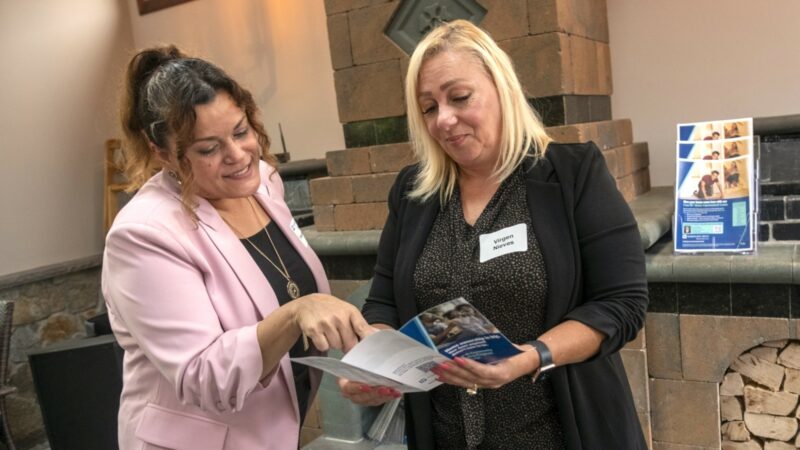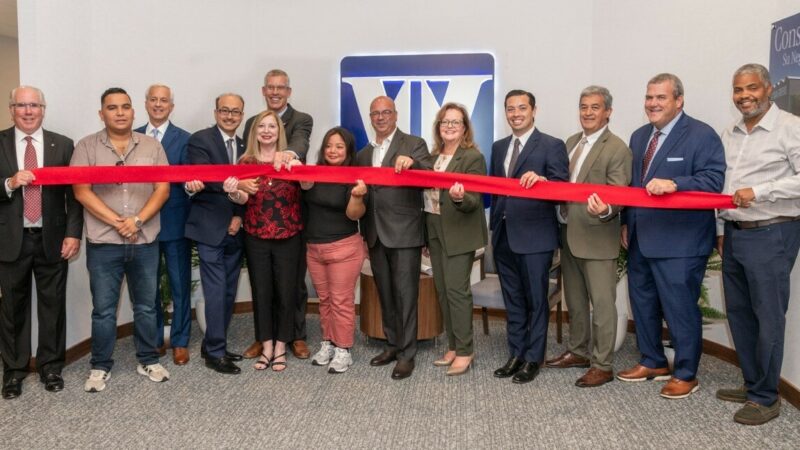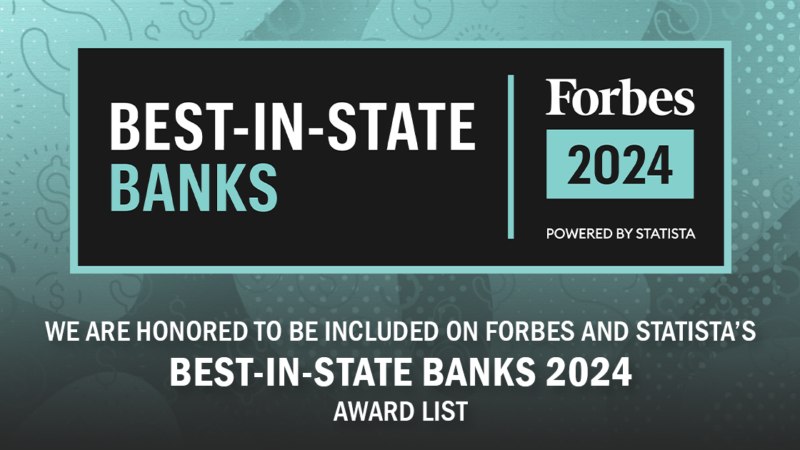Treasurer Diossa and Washington Trust Chairman and CEO Handy Announce Actions to Advance Housing Opportunities and Financial Equity in Rhode Island
October 03, 2023
Providence, RI – Today, Rhode Island General Treasurer James A. Diossa and Edward O. “Ned” Handy III, Chairman and Chief Executive Officer of The Washington Trust Company ("Washington Trust" or "the Bank”), announced actions to help advance housing opportunities and financial equity in majority minority areas and throughout the state of Rhode Island.
“We continue to make progress in discussions with Washington Trust to advance housing opportunities and financial equity in every community throughout Rhode Island,” said General Treasurer Diossa. “I am in communication with Washington Trust’s Chairman and CEO to discuss the Bank’s recent settlement with the Department of Justice and to establish proactive actions to better serve all Rhode Islanders. We have had meaningful and constructive conversations about the important role the State and local banks play in helping Rhode Islanders achieve financial success and home ownership, especially with communities of color. At the same time, we emphasized the need for more effective engagement, recommended ways in which the Bank could expand their lending and outreach programs into underserved communities and encouraged a willingness to create new programs.”
“We value Treasurer Diossa’s constructive cooperation and his commitment to expanding financial services and housing programs in underserved communities,” said Washington Trust Chairman and CEO Handy. “Washington Trust remains committed to ensuring everyone in all Rhode Island communities has equal access to all our financial products and services. We look forward to our Olneyville branch opening in the next few months and are actively researching locations for another branch in other underserved communities. We will continue to partner with organizations like the Treasurer’s office that are making a difference, especially those committed to advancing financial literacy and economic empowerment, supporting access to safe and affordable housing, and providing basic needs and family services. We appreciate the input provided by the Treasurer and look forward to continued communication and collaboration.”
The Treasurer’s Office and the Bank agreed to several proactive actions to achieve their mutual goals.
- The Bank will establish a diverse and inclusive community advisory board that will include a representative of the Office of the General Treasurer and will meet at least quarterly.
- The Bank will further expand its current paid advertisements on media outlets in underserved communities and communities of color.
- The Bank will continue and expand its sponsorship of community and cultural events in Rhode Island’s communities of color, including but not limited to community celebrations, festivals, and any other type of organizational events that reach communities of color in Rhode Island.
- The Bank commits to diversifying its Board of Directors and Leadership Team with the goal of reflecting the state’s general population.
- The Bank will work with the Rhode Island Hispanic Chamber of Commerce and continue to support the Rhode Island Black Business Association and the National Association of Hispanic Realtors, Rhode Island Chapter, as well as other community-based direct-service organizations, community development corporations, and any other organizations that provide the residents of diverse community census tracts in the Rhode Island lending area with services related to credit, financial education, homeownership, and foreclosure prevention.
- The Office of the General Treasurer and the Bank will work jointly to expand the Bank’s financial literacy program in additional urban school districts in Rhode Island.
- The Bank will share its Community Credit Needs Assessment with the Office of the General Treasurer and receive recommendations to benefit underserved areas of the state.
- The Office of the General Treasurer and the Bank will work together to expand the use and awareness of all the Bank’s homeownership programs, which include grants, coordination to obtain other grant funds available, and home improvement programs to help current homeowners improve and update their homes. This will include evaluating opportunities such as providing downpayment assistant grants and greater flexibility in consideration of credit score requirements in communities of color.
- Treasurer Diossa and Washington Trust’s Chairman and CEO Handy will meet quarterly to review progress and discuss any adjustments in the strategy to achieve increased community engagement.
- Washington Trust will partner with the Office of the General Treasurer in supporting the state’s CollegeBound Saver 529 Plan.
ABOUT WASHINGTON TRUST BANCORP, INC.
Washington Trust Bancorp, Inc. (“the Corporation), NASDAQ: WASH, is the publicly-owned holding company of The Washington Trust Company (“Washington Trust”, “the Bank”), with $7.0 billion in assets as of June 30, 2023. Founded in 1800, Washington Trust is recognized as the oldest community bank in the nation, the largest state-chartered bank headquartered in Rhode Island and one of the Northeast’s premier financial services companies. Washington Trust values its role as a community bank and is committed to helping the people, businesses, and organizations of New England improve their financial lives. The Bank offers a wide range of commercial banking, mortgage banking, personal banking and wealth management services through its offices in Rhode Island, Connecticut and Massachusetts and a full suite of convenient digital tools. Washington Trust is a member of the FDIC and an equal housing lender. For more information, visit the Corporation’s website at ir.washtrust.com, or the Bank’s website at www.washtrust.com.
Forward-Looking Statements
This report contains statements that are “forward-looking statements.” We may also make forward-looking statements in other documents we file with the SEC, in our annual reports to shareholders, in press releases and other written materials, and in oral statements made by our officers, directors or employees. You can identify forward-looking statements by the use of the words “believe,” “expect,” “anticipate,” “intend,” “estimate,” “assume,” “outlook,” “will,” “should,” and other expressions that predict or indicate future events and trends and which do not relate to historical matters. You should not rely on forward-looking statements, because they involve known and unknown risks, uncertainties, and other factors, some of which are beyond our control. These risks, uncertainties and other factors may cause our actual results, performance, or achievements to be materially different than the anticipated future results, performance or achievements expressed or implied by the forward-looking statements.
Some of the factors that might cause these differences include the following:
- changes in general business and economic conditions on a national basis and in the local markets in which we operate;
- changes in customer behavior due to political, business, and economic conditions, including inflation and concerns about liquidity;
- interest rate changes or volatility, as well as changes in the balance and mix of loans and deposits;
- changes in loan demand and collectability;
- the possibility that future credit losses are higher than currently expected due to changes in economic assumptions or adverse economic developments;
- ongoing volatility in national and international financial markets;
- reductions in the market value or outflows of wealth management AUA;
- decreases in the value of securities and other assets;
- increases in defaults and charge-off rates;
- changes in the size and nature of our competition;
- changes in legislation or regulation and accounting principles, policies, and guidelines;
- operational risks including, but not limited to, changes in information technology, cybersecurity incidents, fraud, natural disasters, war, terrorism, civil unrest, and future pandemics;
- regulatory, litigation, and reputational risks; and
- changes in the assumptions used in making such forward-looking statements.
In addition, the factors described under “Risk Factors” in Item 1A of our Annual Report on Form 10-K for the fiscal year ended December 31, 2022, as updated by our Quarterly Reports on Form 10-Q and other filings submitted to the SEC, may result in these differences. You should carefully review all of these factors and you should be aware that there may be other factors that could cause these differences. These forward-looking statements were based on information, plans, and estimates at the date of this report, and we assume no obligation to update any forward-looking statements to reflect changes in underlying assumptions or factors, new information, future events, or other changes.
# # #











